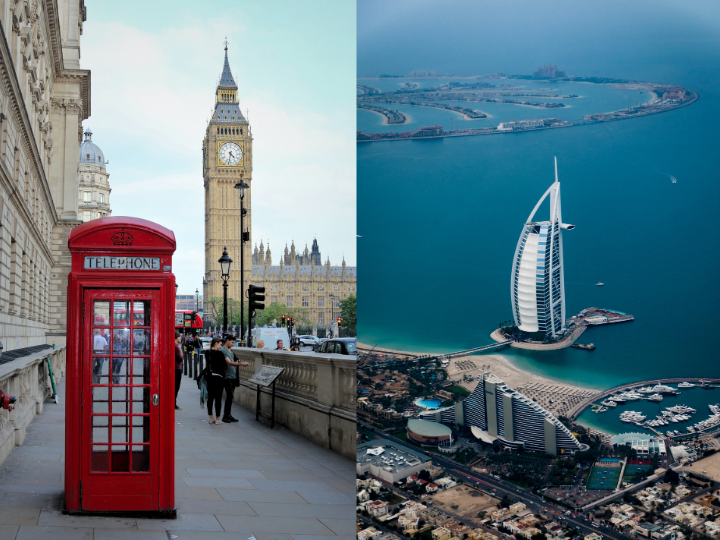by Martin Banks
The World Cup last December saw several significant economic spin offs for Arab World countries and Dubai has also been able to enjoy a considerable boost. With a huge global audience the tournament was a chance to showcase the whole region. But one of the lesser known trends has come in the shape of a major influx of newcomers, many of them from the UK.
Perhaps the most fascinating current trend is the number of entrepreneurs who are apparently waving goodbye to the UK and heading to Dubai. New research seen by this website reveals the full extent of the relative “brain drain” from London to Dubai.
A combination of soaring inflation and the growing real tax burden, mounting to its highest since WWII, with a higher proportion of adults paying significant income tax rates due to the government’s decision to freeze tax thresholds, is thought to be behind the exodus. Some fear a looming prospect of further taxes as the UK Labour party is expected to win the next general election in 2024 enacting new tax policies targeted at the affluent.
The UAE, particularly Dubai, has seen a spike in British expatriates. The combination of the rise of remote work, no income tax, low crime rate, and a better value-for-money in terms of cost of living has made cities like Dubai an attractive alternative.
New and extensive research has been carried out by the leading online property hub Housearch.com which compared the cost of a whole range of services, from rent and groceries to transportation and entertainment to find out whether the cost of living in Dubai is lower than in London. The result appears to be an unequivocal “yes.”
During the period from 2017 to 2022 the UK has lost approximately 12,500 more high-net-worth individuals than it has gained through migration, and it is expected to lose another 3,200 millionaires to migration in 2023.
Housearch.com said Dubai and London are both cities with high living standards and both are among the top 10 in the 2022 Top 100 City Destinations Index. A high ranking on the list shows a city’s investment and business potential, as well as its economic prosperity and appeal to tourists.
For expats, however, the key factor in choosing a place to live is the cost of living, it noted. In its research Housearch.com found that the difference between the two cities, both financial capitals, is “significant” when it comes to buying property. The price per square metre is more expensive in central London than in Dubai, $16,800 and $3900 respectively, and $9800 and $2300 on the outskirts.
Rent in central London districts (such as Westminster, Chelsea and Kensington) starts at $3,000 per month. In central Dubai in areas like Dubai Marina, Downtown or Business Bay, rent for studio apartments starts at $1,900 per month.
According to the research, groceries in Dubai are 17% cheaper than in London while eating out is cheaper in the UAE. Dinner at a budget-friendly place costs around $11, while it will set you back around $25 in London.
The UAE is the eighth-largest country in the world in terms of oil reserves, and the seventh in yearly extractions of oil. Petrol is cheap. Prices start at $0.88 per litre versus $2 in London.
As part of its exhaustive research between the two cities, it found that public transportation in Dubai is also cheaper. The total cost of a trip depends on the number of zones you have crossed. The most expensive transport ticket is $2.50. In London, ticket prices can get more expensive depending on the distance and the time of day. If you pay by credit card or Oyster transportation card, you can spend up to $6.67 per day.
However, healthcare was one area where the UK, with its state funded National Health Service, may score well against Dubai. Even with insurance, you will have to pay for medical services in Dubai. Phone services and the Internet are expensive in Dubai.
Andrew Horbury, Cavenwell Group Managing Director, told Business Matters magazine, “Dubai has historically attracted high-net-worth individuals but heavy investment in infrastructure and connectivity, and very favourable business and tax rules mean that’s all changing.
“We’ve seen a significant increase in the number of start-up founders, small business owners, and even freelancers who are looking to relocate.”
The emirate’s population surpassed 3.5 million in 2022 but, with a major expansion of the city planned, the government’s goal is a target of 5.8 million people by 2040. The new research indicates the country is well on track to achieve this target.




 By: N. Peter Kramer
By: N. Peter Kramer

